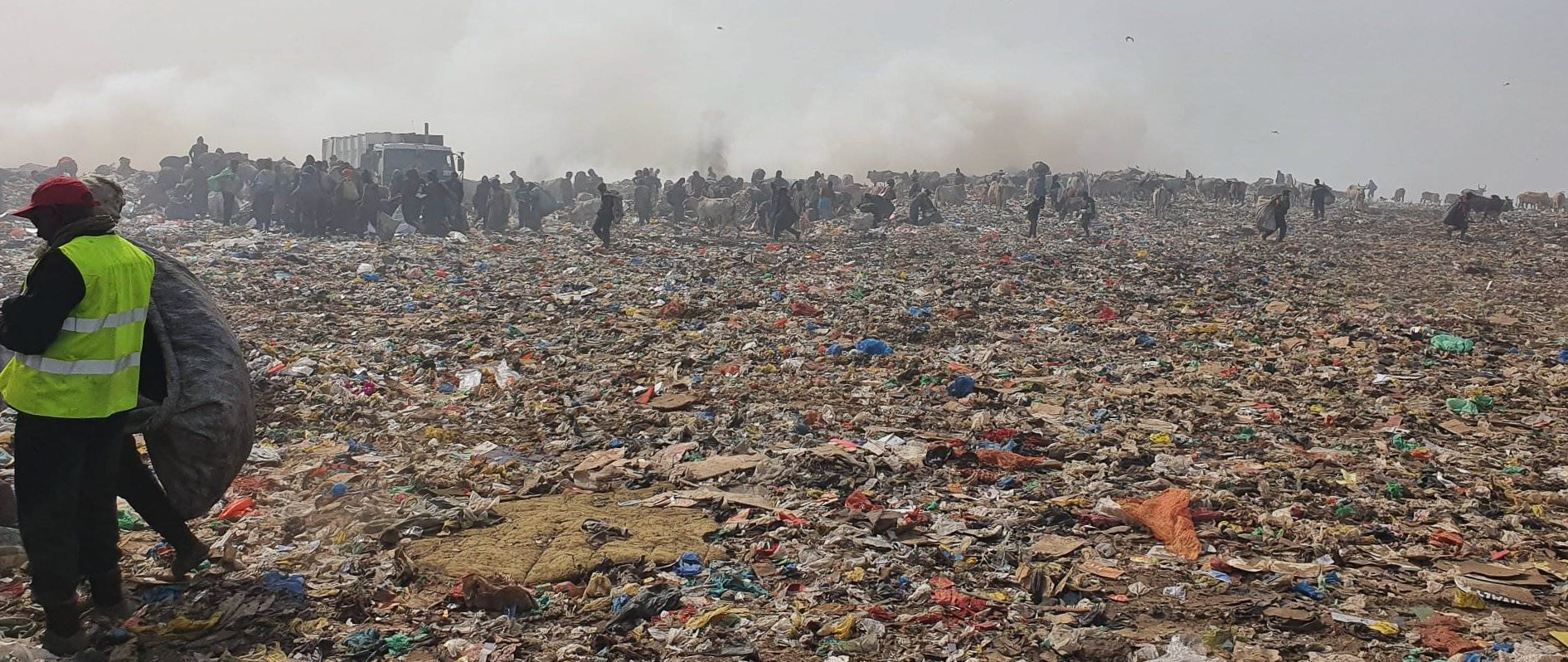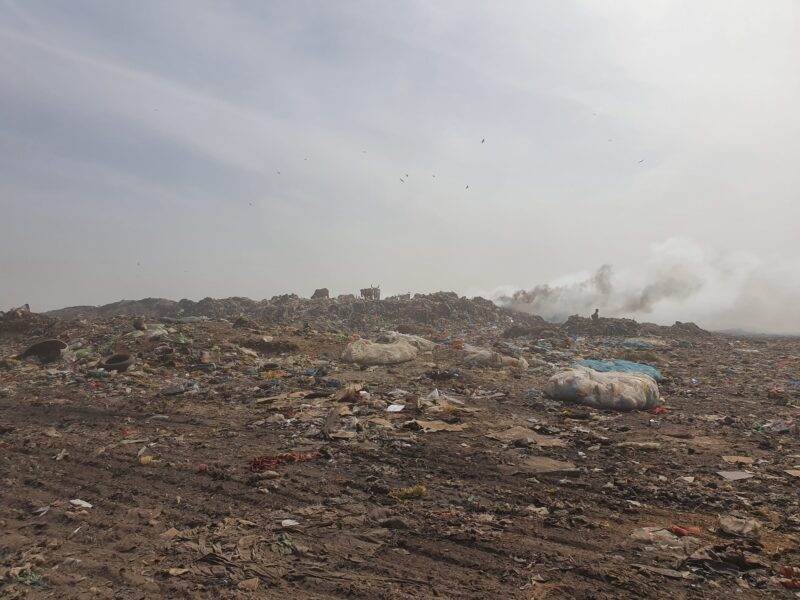
Thousands of people affected by the indiscriminate, open burning of waste in Senegal are set to benefit from a £60,000 grant awarded to Practical Action by the Royal Academy of Engineering.
The funds will be used to tackle the issue of burning rubbish in outdoors, a practise which leads to health risks and environmental pollution, and to improve waste management systems within the country.
Practical Action has been awarded the grant as part of a £450,000 donation to sixteen organisations and projects worldwide over two years.
The Open Burning of Waste Grant scheme is a globally focused initiative which aims to address the pressing issue of waste management on a large scale. It also seeks to raise awareness of the challenges and opportunities from open waste burning, and actions by African and global stakeholders.
Practical Action’s work focuses on reducing the amount of waste openly burned at two major dumpsites in Senegal: the infamous Mbeubeus site in Dakar, and another in Thiès.

Edwin Obiero, Practical Action’s West Africa Regional Director said
“Open burning of waste is a major issue in urban settlements in Senegal, due to its serious negative effects on human health and pollution of the environment. Through this initiative, Practical Action in partnership with a local research institution and the national waste utility will contribute to strengthening the knowledge base on the challenges and opportunities of open burning of waste.
“We will leverage the learnings from this initiative to help influence policy interventions and bring about long-term systemic change for communities involved in the municipal solid-waste value chains. By working hand-in-hand to reduce the impact of open burning waste, we are creating opportunities for a better, healthier future for all.”
The problem of waste management, especially in urban areas and slums, is daunting. As more people move from rural areas into urban centres, worldwide waste generation, is expected to increase to 3.4 billion tonnes over the next 30 years (up from 2.1 billion tonnes in 2016), according to a report by the World Bank in 2018. That is equivalent to one million Boeing 747s.
Charlie Fenn, Manager, Safer End of Engineered Life ‑ Open Burning Programme at Engineering X said
“We are committed to building evidence and raising awareness about open burning of waste and its impact on human health and the environment, but the challenges of this global practice are still poorly understood. Through its work in Senegal, Practical Action will help our understanding of the needs of the most vulnerable people who are affected by open burning and how local, community-focused approaches could result in positive progress towards greater global health and sustainability.”
Working in partnership with Ecole Polytechnique de Thiès (EPT) and the National Company for Integrated Waste Management (SONAGED), Practical Action aims to tackle the waste-burning issue in Senegal by:
- Encouraging households to sort their waste and promote recycling practices, reducing the demand for single-use products.
- Raising awareness about the health impacts of open burning and promoting better recycling practices and consumer choices as ways to reduce this harmful practice at dumpsites.
- Conducting a comprehensive analysis of air pollution caused by waste burning and examining its impacts on health.
- Setting up an early warning system which will alert residents and informal waste workers when air quality is poor due to open burning thereby improving decision-making.
- Improving the health and safety conditions of informal waste workers through training, improved equipment, and links to health insurance.
- Improving recycling rates and preventing waste from being burned. This will be achieved through close collaboration with existing associations of informal waste pickers and recyclers, such as Bokk Diom in Dakar and Medina Fall in Thiès.
- By working with partners to showcase and share good practices from the project and support wider uptake in the work across the country. This will be achieved through the production and sharing of good practice notes, policy briefs, and workshops to facilitate knowledge exchange among stakeholders.
Lucy Stevens, Head of Practical Action Urban Services, said,
“Practical Action is already engaged in a global partnership with the Royal Academy of Engineering to address the pressing issue of open burning of waste in Africa.
Poor waste management, including open burning, has a significant impact on greenhouse gas emissions and poses severe health and safety risks. Our efforts in Senegal aim to reduce this problem while promoting a more circular waste economy that benefits both people and the environment.”
The fifteen other organisations that will benefit from grants are: Gbobètô, ICLEI Africa , Integrated Community Development Initiative (ICODI), Waste Advisers, Zenafri, ASCI, ADRA, Circular Plastic Institute, Institute of Urbanism, STOP Ocean Plastics, Centre for Waste Management (CWM) – UCLan, Waste Warriors Society, Applied Science Private University, ImpaXus and MDC-TI.NET
The project, Improving Human Health and Livelihood through Reducing Open Burning of Waste in Senegal, is financed by the Engineering X programme, the Royal Academy of Engineering and supported by Lloyd’s Register Foundation.